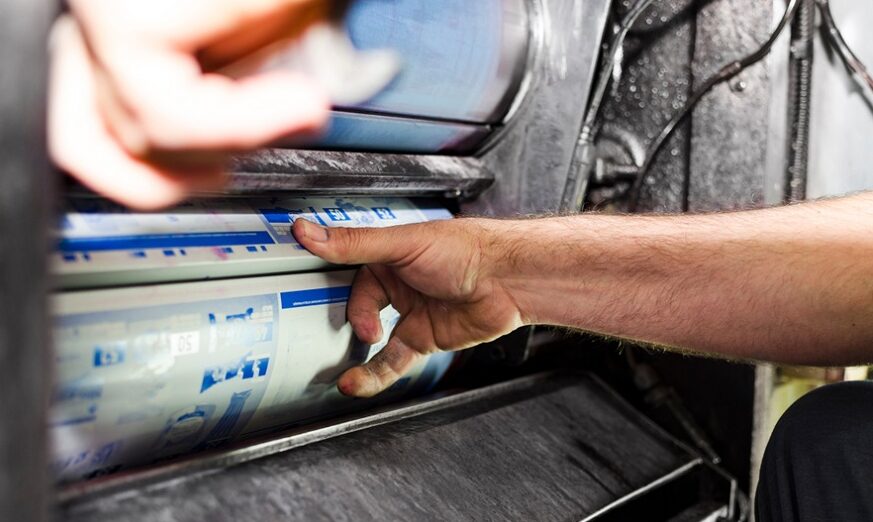In today’s world, educational institutions are tasked with providing high-quality materials for students, teachers, and staff. One of the most efficient ways to produce these materials is through offset printing. This method is not only cost-effective but also delivers superior quality. Understanding the benefits and applications of offset printing for educational institutions can revolutionize how schools and universities operate.

Understanding Offset Printing
Offset printing is a popular printing technique where the inked image is transferred from a plate to a rubber blanket and then onto the printing surface. This method is known for its high-quality output and ability to produce large volumes of prints efficiently. For educational institutions, this means the ability to print textbooks, brochures, flyers, and more with great efficiency.
Why Educational Institutions Prefer Offset Printing
Educational institutions often require a large volume of printed materials. Offset printing is ideal for this need because it offers consistency, high image quality, and cost efficiency. The more you print, the cheaper it gets per unit, making it perfect for schools and universities with tight budgets.
Cost Efficiency
One of the primary reasons educational institutions opt for offset printing is cost efficiency. The initial setup cost might be higher than digital printing, but when printing in bulk, the costs drop significantly. This is especially beneficial for producing textbooks and exam papers in large quantities.
High-Quality Output
The quality of the print produced by offset printing is unparalleled. Educational materials require clear and precise printing, especially when it comes to complex diagrams and detailed images. The sharpness and color accuracy that offset printing provides are ideal for these requirements.
Versatility in Printing
From brochures, newsletters, and flyers to posters and business cards, offset printing offers versatility that is unmatched. Educational institutions can benefit from this by producing a wide range of materials to suit different needs. For more insights on using offset printing for newsletters, you can check this offset newsletters guide.
Applications of Offset Printing in Educational Settings
Textbooks and Educational Materials
Textbooks are the core of any educational curriculum. With offset printing, institutions can produce textbooks in bulk, ensuring that every student has access to necessary learning materials without delays.
Promotional Materials
Educational institutions often need promotional materials for events, open days, and marketing purposes. Using offset printing ensures that these materials are of the highest quality, reflecting the institution’s brand and credibility.
Administrative Documents
From business cards to letterheads and envelopes, offset printing can help create professional-looking administrative documents that are essential for the day-to-day operations of any educational institution. For more on printing business cards, read this business cards printing article.
The Environmental Impact
Many educational institutions are becoming increasingly conscious of their environmental footprint. Offset printing has evolved to meet these demands by offering eco-friendly inks and recycled paper options. This helps institutions reduce their carbon footprint while maintaining high-quality print standards.
Eco-Friendly Inks
Modern offset printing utilizes soy-based or vegetable-based inks, which are less harmful to the environment compared to traditional petroleum-based inks. This makes it a more sustainable choice for educational institutions.
Recycled Paper
Another eco-friendly aspect of offset printing is the use of recycled paper. Educational institutions can opt for this option to ensure that they are contributing to environmental sustainability while still producing high-quality printed materials.
Offset vs. Digital Printing
While both offset and digital printing have their merits, offset printing remains the preferred choice for large-volume, high-quality printing. It’s important for educational institutions to understand the differences and choose the method that best suits their needs. For a detailed comparison, visit this offset vs digital printing guide.
Conclusion
In conclusion, offset printing for educational institutions offers numerous benefits including cost efficiency, high-quality output, and versatility in printing. By understanding and leveraging these advantages, educational institutions can enhance their operations, provide better learning materials, and contribute positively to environmental sustainability.

FAQ Section
What is offset printing?
Offset printing is a printing technique where the inked image is transferred from a plate to a rubber blanket, then to the printing surface, known for its high-quality output and efficiency.
Why choose offset printing for educational materials?
Offset printing is cost-effective for large volumes, offers superior print quality, and is versatile, making it ideal for educational materials like textbooks and promotional materials.
Is offset printing environmentally friendly?
Yes, modern offset printing uses eco-friendly inks and recycled paper options, reducing its environmental impact and aligning with sustainability goals.
This article contains affiliate links. We may earn a commission at no extra cost to you.






